
Excess cholesterol is an increasingly widespread problem at all ages. Regulating our body’s cholesterol level is directly related to healthy lifestyle habits, such as exercising and maintaining a varied diet rich in quality fats and proteins. Homemade plant milks are one more way of consuming seeds and nuts that help to regulate cholesterol.
What’s cholesterol?
If we explain in a quick and easy way, cholesterol is a freight train that is dedicated to transporting fats throughout our body. Technically speaking, Cholesterol is a lipoprotein, that is to say, it’s a macromolecular complex composed of proteins and lipids whose main function is to transport fats throughout the body.
How does cholesterol work?
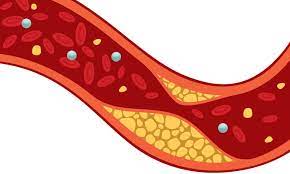 You have probably already heard the common terms “bad” cholesterol (LDL) and “good” cholesterol (HDL). Both types of cholesterol are necessary for the human body and the key to preventing health problems is to get the right percentage of each type.
You have probably already heard the common terms “bad” cholesterol (LDL) and “good” cholesterol (HDL). Both types of cholesterol are necessary for the human body and the key to preventing health problems is to get the right percentage of each type.
Bad” cholesterol (LDL) delivers fat to the cells that need it but leaves excess fat in the arteries and “good” cholesterol (HDL) removes that fat from the arteries and transports it to the liver for elimination.
How to prevent the cholesterol in a healthy way?
Maintaining a balance between the two types of cholesterol is the key to health. The ideal cholesterol levels for an adult person are:
- TOTAL cholesterol < 200mg/dl of which:
- LDL “bad” cholesterol < 130mg/dl.
- HDL “good” cholesterol > 40mg/dl
Prolonged consumption of foods with a lot of saturated fat type LDL becomes a risk factor for heart disease, it is necessary to avoid abusive consumption of meat products, eggs, dairy products, butter, lard, cakes and cookies, coconut, and palm oil. Trans fats, present in processed foods, sausages, and industrial pastries, should also be avoided.
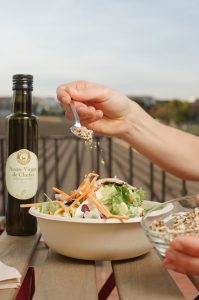 Foods rich in HDL (“good” fats)
Foods rich in HDL (“good” fats)
There are many plant foods that provide HDL, all of them tasty and versatile, as they can be integrated into different meals and times of the day. We highlight as main sources of “good” fats:
Nuts: especially walnuts, almonds, and pistachios. Attention because the nuts must be roasted or raw, that is to say, without salt, oil, or honey.
Seeds: Flaxseed, chia, and pumpkin seeds stand out for their beta-glucan, fiber, and omegas content. It’s very important to crush or hydrate the flax and chia seeds before consuming them so that they have some effect on our organism. If we do not take care of this detail, the seeds cannot be digested.
Other vegetable ingredients that provide high HDL content are soy lecithin, vegetable oils rich in polyunsaturated fats such as EVOO or sunflower oil, and eating fruit in the morning.
Preventing cholesterol with homemade plant milk
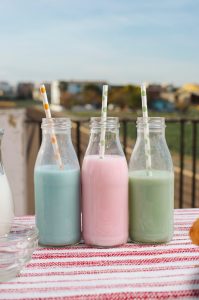 Homemade plant milk that helps regulate cholesterol are:
Homemade plant milk that helps regulate cholesterol are:
- Walnut milk: Exquisite to drink alone, with coffee or tea. The leftover pulp is a smooth cream that can be eaten in spoonfuls, as pâté, hummus, chickpea or beet pâté, or guacamole.
- Almond milk: Like nut milk, it is exquisite on its own, or mixed with coffee and tea. The leftover pulp can be used for baking or as a condiment for salads, yogurts, or muesli.
- Pistachio milk: Ideal to drink alone, with coffee or tea. The pulp is very creamy and versatile and can be used as an ingredient in vegetable pâtés, hummus, or guacamole.
Here is the nut milk recipe.
- Pumpkin seed milk: Original flavor of milk, also combinable with tea, coffee or to introduce it in smoothies. Its pulp is as versatile as that of nuts.
- Linseed milk: Well known for its medicinal qualities, thanks to a large amount of fiber it is the creamiest milk in the market.
It’s important to eat the pulp to get all the nutrients of the seed and its properties to regulate cholesterol. You have more ideas for sweet and savory dishes in the pulp section of this blog.
Other interesting options offered by Vegan Milker:
Vegan Milker allows us to make the mixture of ingredients or seeds that we want, so there are multiple combinations. If we are looking to regulate cholesterol, we can add a handful of walnuts in oat milk, or a handful of almonds in rice milk, etc. To make them even healthier.
When mixing seeds and nuts, we should avoid flaxseed and chia seeds that can spoil the milk with unwanted viscous effects.
Enjoy!

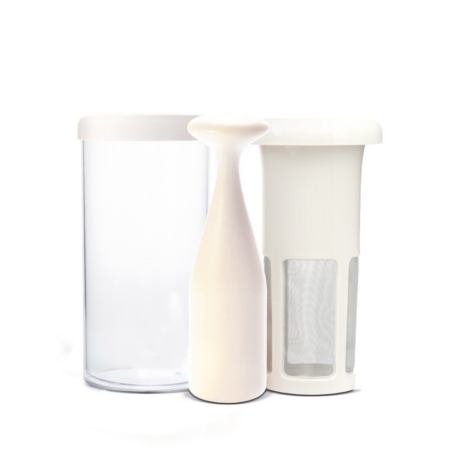
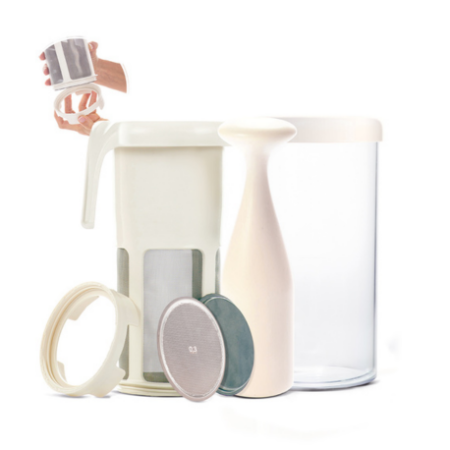
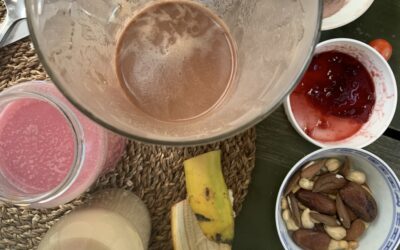
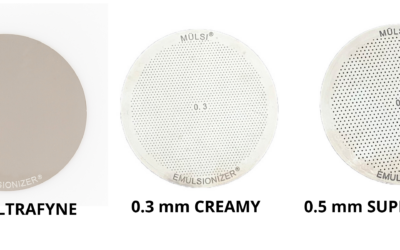

0 Comments